Updated August 11, 2025
Do you find yourself struggling to connect with the developmental disability resources you need? You’re not alone, my friend!
Even though it’s been close to seventeen years since our son was diagnosed, it feels like it was yesterday. I found myself in the geneticist’s office, unaware how much our lives were about to change. I stared at the test results in my hand, trying my best to absorb everything the geneticist was explaining.
A thought crossed my mind: “Is this really it? Just a sheet of paper filled with chromosomes and a list of symptoms?”
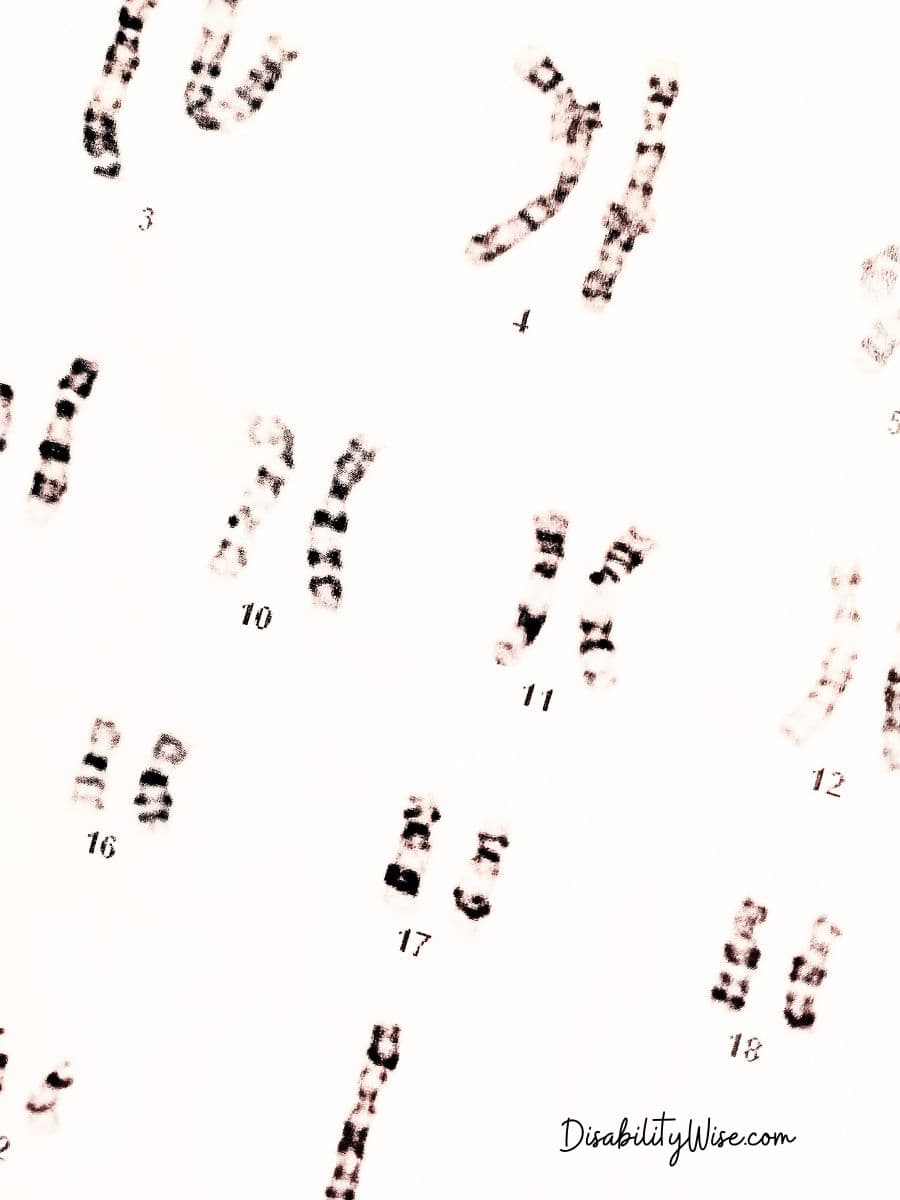
I couldn’t help wondering why no other instructions were given for a life-changing moment like this. I wanted to say out loud, “A guide for ‘Everything You’ll Ever Need to Know About Your Child’s Diagnosis’ would come in handy right about now, doc!”
But no such luck. I left with the results in hand, and that was that. We were on our own to figure out the rest.
Eventually, we managed to connect with resources, but it certainly wasn’t (and still isn’t) easy! Even the most basic of searches can be maddening sometimes.
The thing is, navigating through the day-to-day of this unexpected journey is tough enough sometimes. Searching for the answers to our questions shouldn’t have to be.
That’s why in this post, I’ll share five easy ways to connect you to dependable and trustworthy disability resources, so you can start getting the answers you need.
1. Developmental Disabilities (DD) Agency
Your state or county DD agency is a must when searching for reliable developmental disability resources. Every state has a DD agency to help serve and support children and adults with developmental disabilities and their families.
DD agencies provide support and services for individuals across their lifespans, like early intervention, employment navigation, recreational and day program opportunities, plus informational resources.
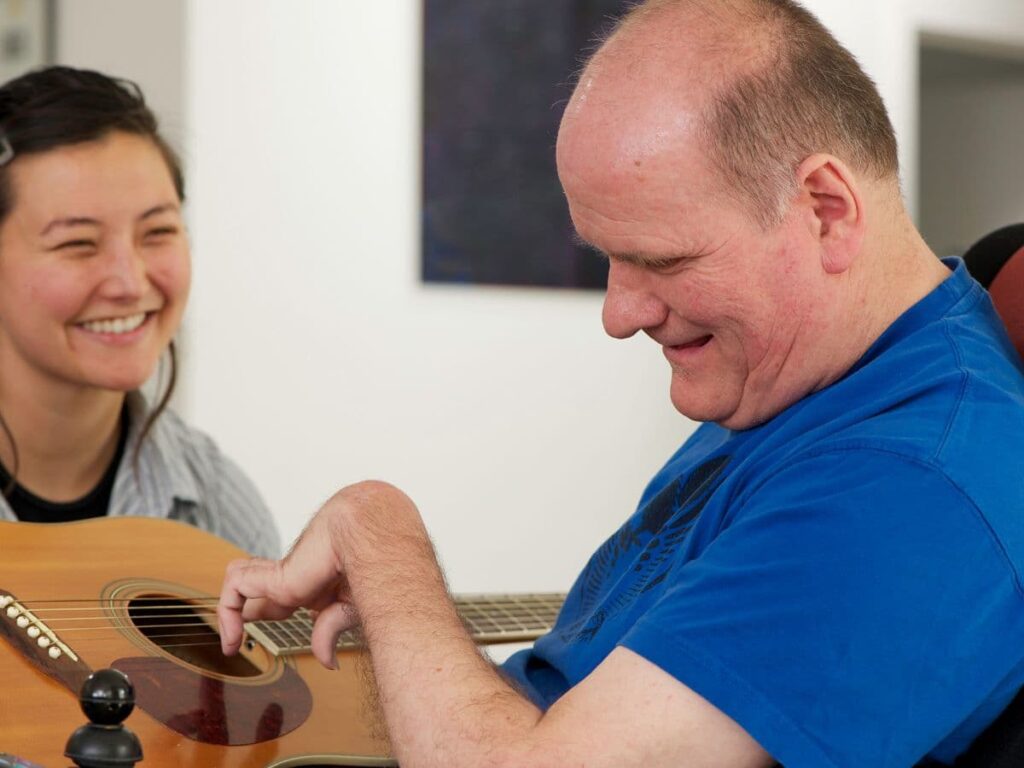
According to the DD Act of 2000, to qualify for DD services, “a person must have a developmental disability, defined as a severe and chronic disability that is likely to last a person’s lifetime and was developed before the age of 22″.
The earlier you connect with your local DD agency, the sooner your child can begin receiving the services they need to thrive.
You can find your state DD agency at The National Association of State Directors of Developmental Disabilities Services (NASDDDS)
2. Early Intervention (EI) Services
For families with young children, early intervention (EI) is a must for accessing early supports and services.
Shortly after we received Ian’s diagnosis, his pediatrician recommended our state’s Early Intervention (EI) program, Help Me Grow.

Reflecting on it now, I’m so thankful she did. It led us to speech and occupational therapy and connected us with other essential services, including our county DD agency.
EI is a publicly funded program that provides free services or services at a reduced cost to eligible children and their families. Every state and territory offers an EI program. You can find your state’s EI program on the CDC website.
3. Healthcare Professionals, Therapists, and Educators
Partnering with healthcare professionals, therapists, and educators is a smart strategy. They can provide valuable advice, recommend interventions, and help parents in overcoming the challenges of meeting their child’s needs.
By the time our son turned 2, he wasn’t meeting his milestones. While family and friends would try to reassure me that delays were common in boys, his pediatrician had a different take on it.
Her concern led to genetic testing, which led to an early diagnosis. This helped connect the dots and gave us a clearer understanding of what to expect and how best to support our son moving forward.
On some days, you might feel entirely isolated on this journey. Remember, you are not on this journey by yourself. There are individuals ready to support you at every turn.
4. Online Developmental Disability Resources
Honestly, I have a love/hate relationship with technology. I dislike how it eats up my time and pulls my focus away. Although to be fair, that may be a “me problem” and not a “technology problem” (Haha).
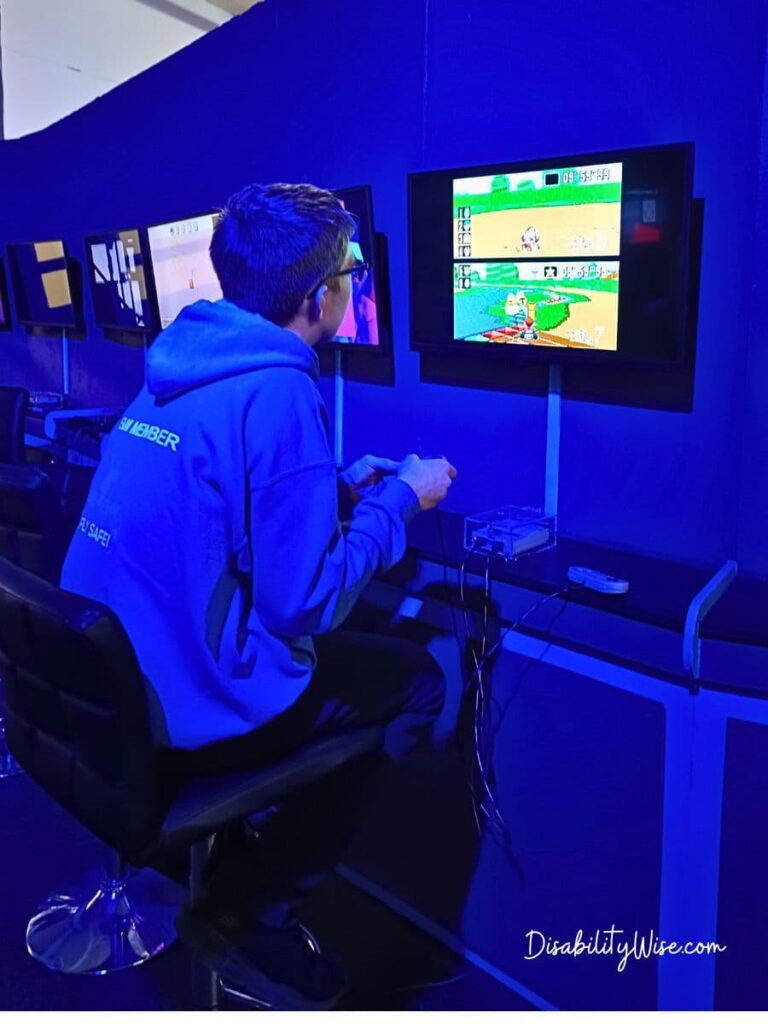
On the flip side, I love having a treasure trove of knowledge right at my fingertips! But that also means there is a ton of information to weed through to find the trustworthy bits. Here is a list of my tried-and-true resources that will guide you in the right direction.
5. Other Parents of Children with Developmental Disabilities
No two journeys are identical, but nothing compares to the wisdom and understanding of those on similar paths.
Sharing firsthand experiences with other parents can be so beneficial. Swapping advice and stories can provide solace and support, especially during those hard moments we all experience.
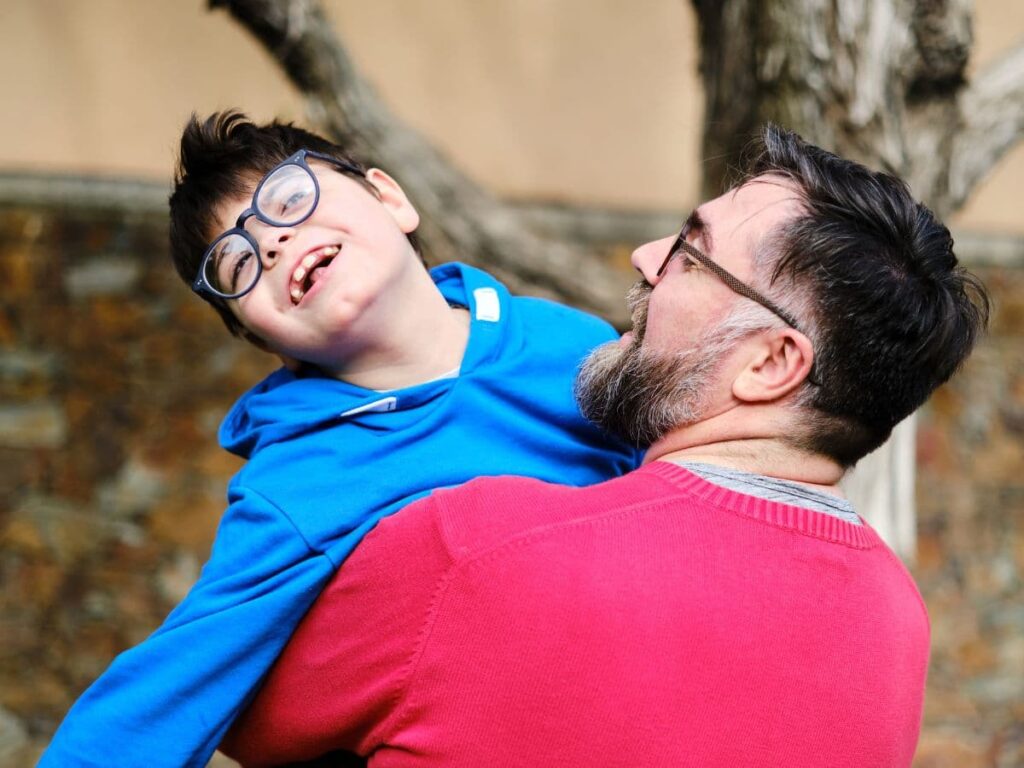
Keep in mind that when you engage with other parents, you’re not just gaining valuable information; you’re also building a village—a supportive community to rely on during difficult times and to celebrate the happy moments and wins.
The village we have built over the years has truly become an extension of our family. Together, we navigate life’s challenges, celebrate victories, and share in each other’s joys and sorrows.
Having a village is so important to this journey. I hope you’re able to build and experience your own.
6. Organizations and Advocacy Groups
Organizations and advocacy groups are amazing entities that work to support or represent individuals with disabilities. Some focus on a single specific disability (single-disability), while others are centered on embracing a variety of disabilities (cross-disability).
These groups work tirelessly to support, empower, and uplift those they represent. Whether it’s through advocating for policy changes, providing resources and services, or simply creating a space for connection and support, their impact is profound.
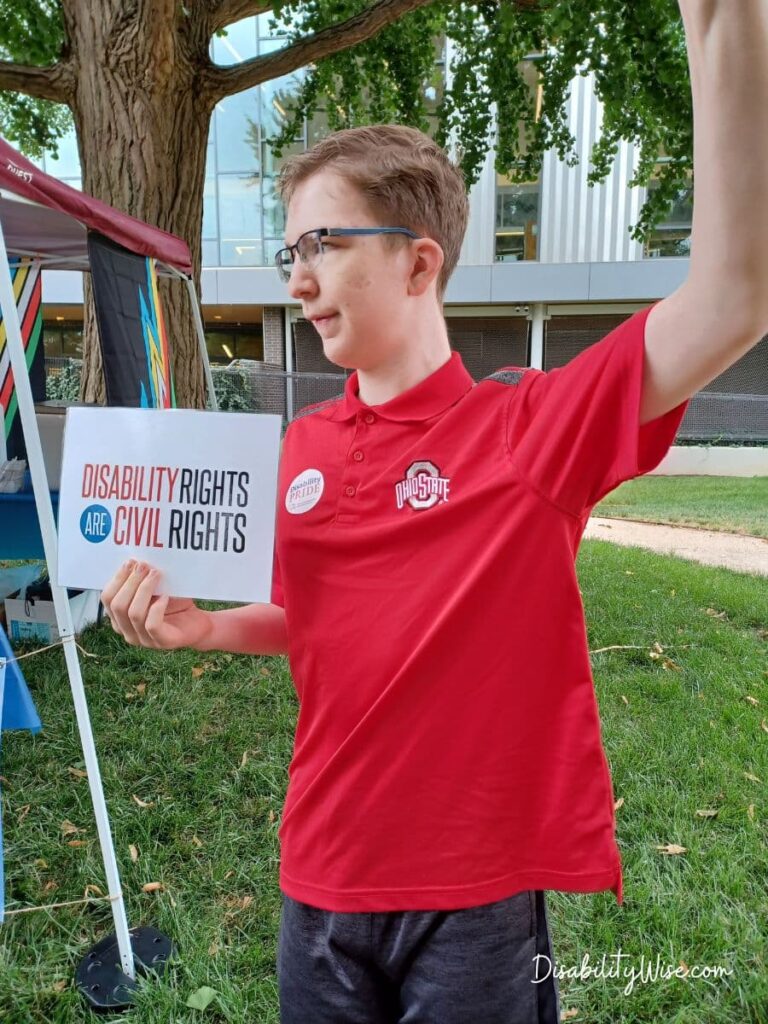
I remember the first time I reached out to the Alliance for my son’s syndrome—it was like finding a second family. You know how it is when you just need a place where your questions and worries feel heard? That’s exactly what they offered.
They got it. No question felt too small or too big. There’s something comforting about knowing there are people who truly understand the ups and downs of raising a child with a disability.
So, whether you’re seeking information, looking to connect with others, or hoping to get involved in advocacy, these organizations have something valuable to offer. They remind us all of the power of community.
Take a look at a few of these:
Single-disability Organizations
National Down Syndrome Society
Cross-disability and Advocacy Organizations
The Arc | For People With Intellectual and Developmental Disabilities
Final Thoughts: You’re Not Alone
It’s important to remember that you’re not facing this journey alone. Organizations, professionals, other families, and individuals are a phone call, text, or online search away.
By being intentional and making connections, you’re actively taking meaningful steps toward building a supportive community for yourself and your loved one with a disability. Continue to move forward, and remember that there are people who truly care and are ready to help you on this journey, myself included! 🙂
I would love to hear what your favorite go-to resource is for your developmental disability journey. Be sure to leave a comment.
SHARE ON:



I’ve honestly found a lot of useful information in movies believe it or not. Like you said, sometimes hearing stories from other parents can actually give you more useful real-life information compared to the sterile or statistical info you learn at the doctor’s office. Spellers, Life Animated, and Crip Camp are some of my all-time favorites! And as a hopeless romantic, Down for Love and Love on the Spectrum had me glued to my seat – besides the narrative about these young men and women searching for love, these shows also give a glimpse into how families support young men and women with disabilities while also recognizing their autonomy as young adults. Since my daughter is only five, being able to see these examples is extremely helpful.
Movies, what a great untapped resource! Thanks for recommending your favorites. I look forward to checking them out 🙂